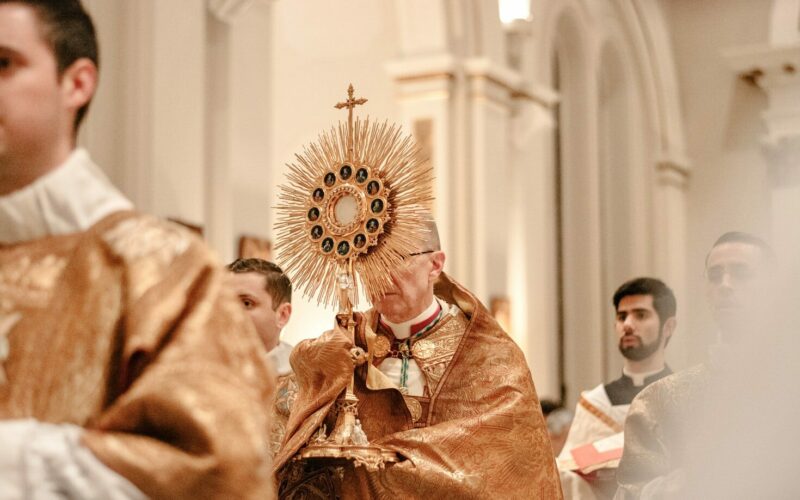Lessons from progressive Catholics for the Plenary Council
October 30, 2021
Historically, the Church has thrived on the margins. Today, that potential continues to beckon.
For the past two years, the Catholic Church in Australia has been preparing for the Plenary Council. The bishops have been making decisions and leading the discussion. Yet questions have been asked about how that process was undertaken. Those on the edge of the fold have had to assert themselves to get heard. The Australian Catholic Coalition for Church Reform (ACCCR) is one example of that effort.
There are many who haven’t bothered. Their eyes glaze over at the thought of another talkfest.
My first experience of these confabs was in 1994 when Bishop Peter Quinn in the Bunbury diocese launched a pastoral enquiry. Apparently, it was nipped in the bud by a small group of reactionaries. In 1998, Quinn challenged Cardinal Joseph Ratzinger at the Synod for Oceania to preserve pastoral priority and commitment to the local Church. The result: Quinn retired; Ratzinger became pope; doctrinal orthodoxy remains hegemonic.
Many persevered with Church attendance and pastoral service. As did I, coupled with university studies. I wanted to understand the complex world in which we live. In my PhD, I examined how priests in sexually intimate relationships navigate unsettling questions about religion and sexuality. In later research, I studied clergy sexual abuse. The bishops’ mere tinkering of these matters left me in despair. They have yet to fully appreciate the implications of gender, sexuality and justice for theology, structure, and God.
In postdoctoral research, I investigated progressive Catholics. Mostly well-educated professionals in Church and society, they scrutinise religion chained to absolutism; that which considers itself above historical and cultural change. Likewise, they criticise secular preoccupations with the self and materiality, and their corrosive impacts on solidarity. Today, many have moved on from the pews, and are adapting their faith to the demands of living a dignified life in the 21st century.
In 2016, I published my research, Innovative Catholicism and the Human Condition, now freely available.
For readers who find philosophy a bit of a stretch, I suggest skip the first chapter briefly summarised here. (The rest of the chapters, I am told, are eminently readable!) The work is framed in the 2004 dialogue between Ratzinger and Jrgen Habermas, a highly influential social and political thinker. Haberman questions whether secular reason provides sufficient grounds for democracy, whereas Ratzinger argues for the necessity of certain moral principles secured in “authentic religion” for maintaining the foundations of a free state.
Innovative Catholicism explores the middle ground between the positions set out by Ratzinger and Habermas. The research draws on the wisdom of 114 progressive Catholics in Australia who are not just talking about ideas or giving opinions but are putting them into practise. Peppered generously with quotes, the book documents the ways in which these respondents: enlarge their sense of identity to include others; revise morality through the lens of justice and compassion; overcome the structural disjunction between Church and state; reconfigure ritual to accommodate social and ecological solidarity; revivify their worldview in science and God.
The study drew two basic conclusions. Religion that cannot accommodate innovation loses, at minimum, relevance and vitality, and maximally, its raison d’tre. A society that is not able to tap into sentimental and spiritual dimensions is prone to problems relating to excess, and, hence, remains unstable. Meantime, progressive Catholics demonstrate the possibility that a more accommodating religion and society may someday prevail.
I, myself, took the research findings seriously, committing myself to both contemplation and action. I now find myself working restoratively on the margins alongside prisoners, problematic drug users and their families, and chronically homeless people. And it is from this perspective that I make my appeal to all who participate in the Plenary Council to attend the church in the borderlands. In prisons, drop-in centres and shelters, doctrinal orthodoxy and secular reason are not sufficient for progressing life.
The Church has historically thrived on the margins. Today, that potential continues to beckon. However, if the Plenary accepts that invitation, it will have to confront the question of how the progressive legacy is to survive the vested interests of doctrinal orthodoxy and secular reason? How will it rein in the excesses that have created widespread exclusion and ecological degradation?
Nevertheless, leaving the Plenary alone to produce answers is not enough. The challenge of what is presented is for us all. Our existence depends on us striving for a more accommodating religion and society.

